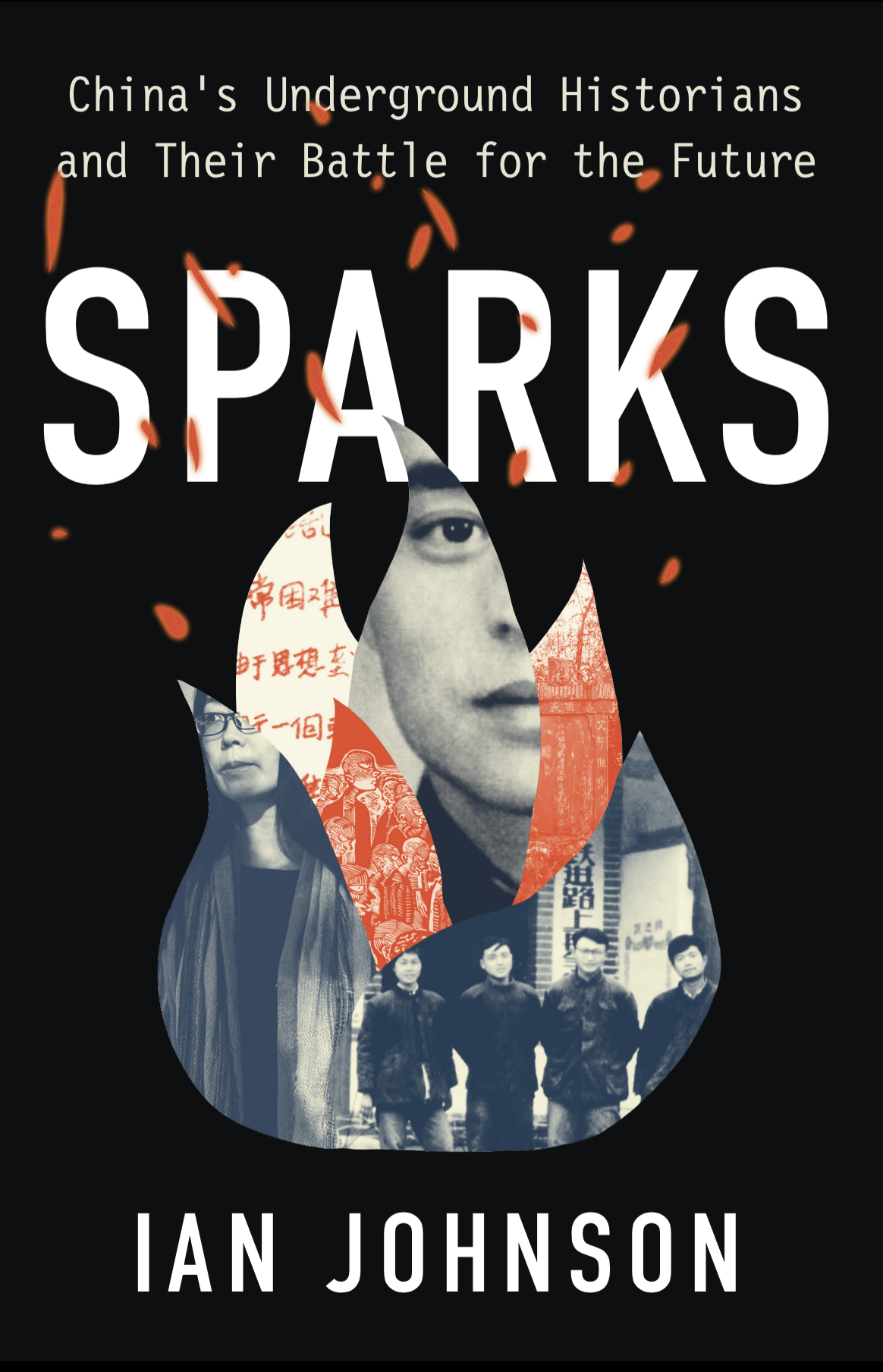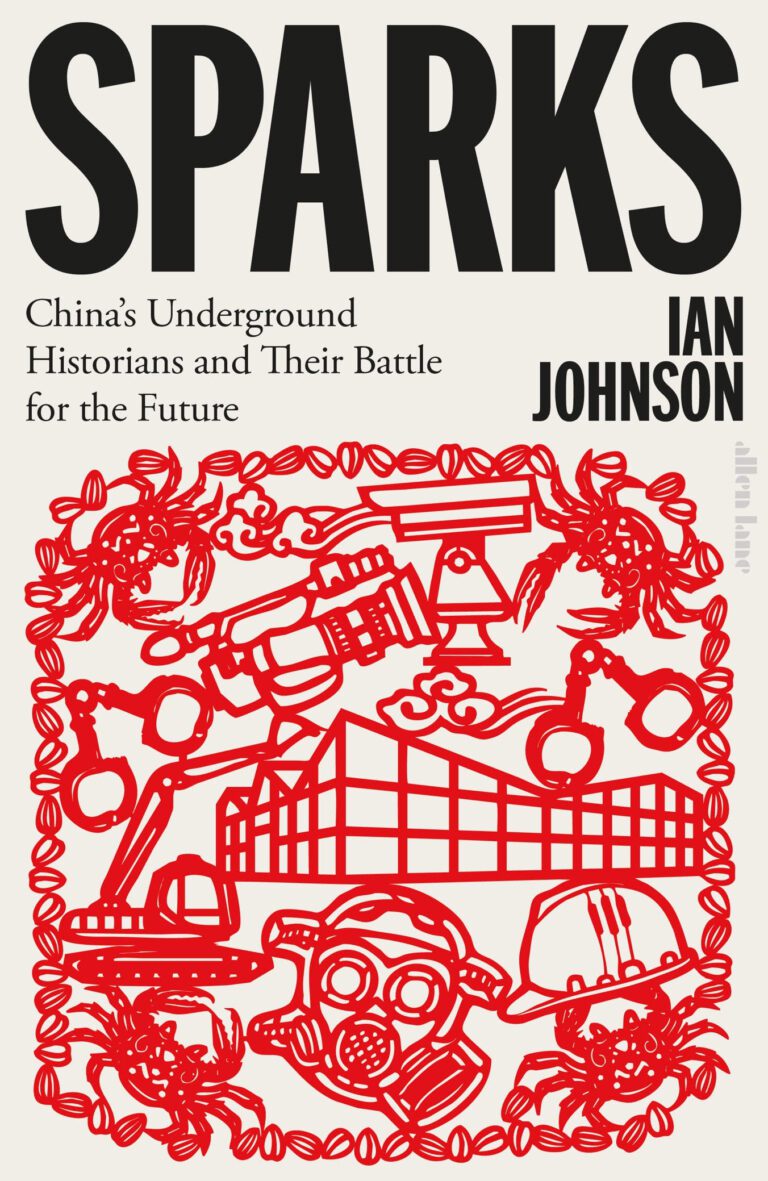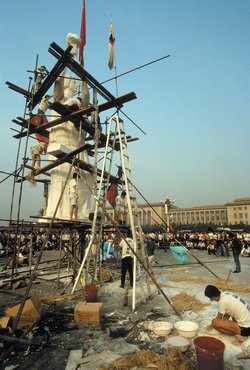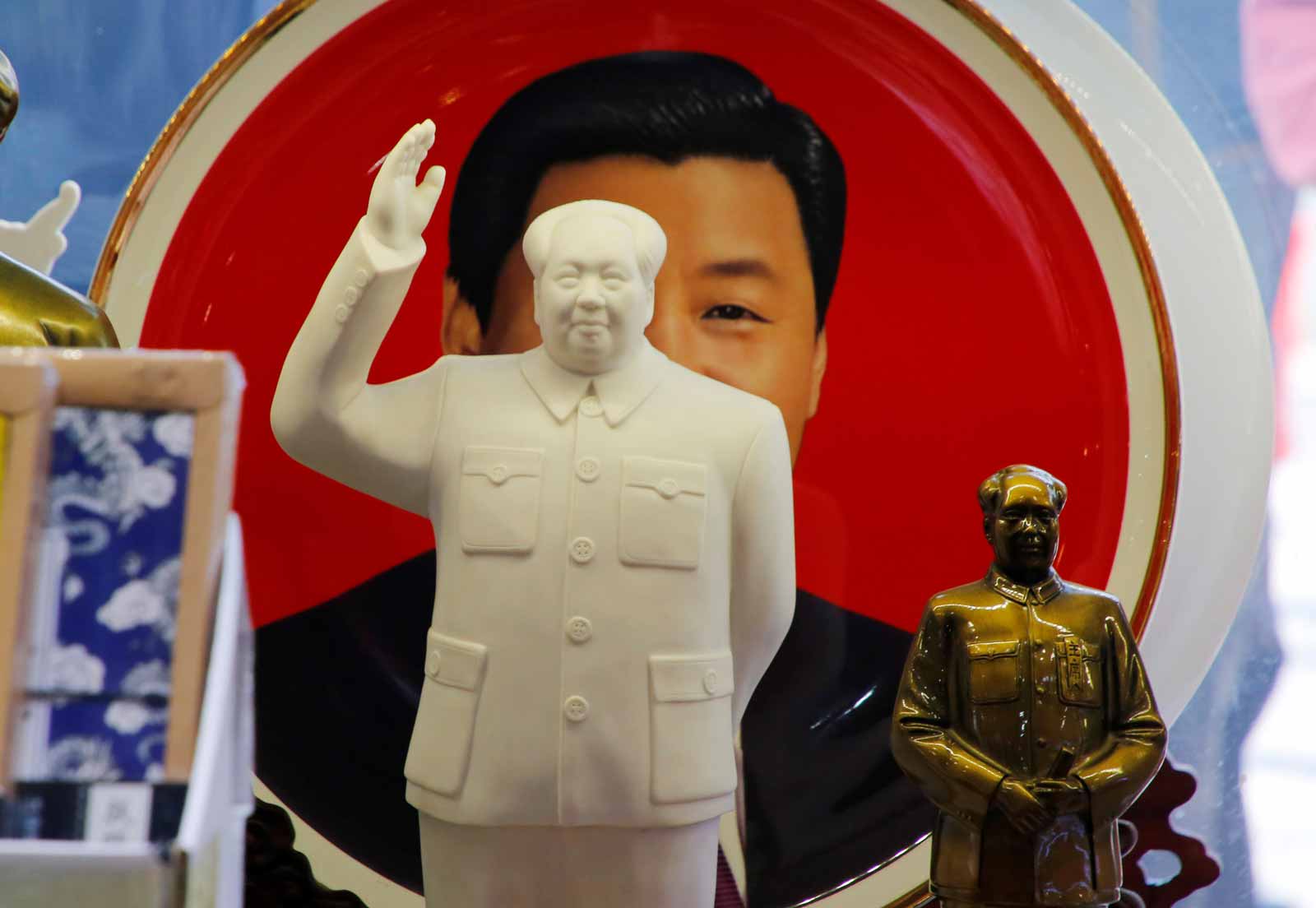
Coming sept 2023: Sparks
Coming 26 September 2023: Sparks: China’s Underground Historians and their Battle for the Future–my first book in six years, a chronicle of Chinese people inside China today who are challenging the Communist Party on its most sensitive topic, its control of history.
Summary
From the back cover:
A documentary filmmaker who spent years uncovering a Mao-era death camp; an independent journalist who gave voice to the millions who suffered through draconian Covid lockdowns; a samizdat magazine publisher who dodges the secret police: these are some of the people who make up Sparks: China’s Underground Historians and their Battle for the Future, a vital account of how some of China’s most important writers, filmmakers, and artists have overcome crackdowns and censorship to challenge the Chinese Communist Party on its most sacred ground–its monopoly on history.
Why history? The past is a battleground in many countries, but in China it is crucial to political power. In traditional China, dynasties rewrote history to justify their rule by proving that their predecessors were unworthy. Marxism gave this a modern gloss, describing history as an unstoppable force heading toward Communism’s triumph. The Communist Party builds on these ideas to whitewash its misdeeds and justify its continued hold on power. Indeed, one of Xi Jinping’s signature policies is the control of history, which he equates with the party’s very survival.
But in recent years, critical thinkers from across China have begun to challenge this state-led disremembering. Using digital technologies to bypass China’s ubiquitous surveillance state, their samizdat journals, underground films, and guerilla media posts document a persistent pattern of disasters: from famines and purges of years past to ethnic clashes and virus outbreaks of the present.
Based on ten years of on-the-ground investigations and interviews, Sparks challenges stereotypes of a China where the state has quashed all free thought, revealing instead a land engaged in of one of humanity’s great struggles of memory against forgetting–a battle that will shape the China that emerges in the mid-21st century.
Advance Praise
For more than three decades, Ian Johnson has conducted some of the most important grassroots research of any foreign journalist in China. With Sparks, he turns his attention to history—not the sanctioned, censored, and selective history promoted by the Communist Party, but the independent histories that are being written and filmed by brave individuals across the country. This book is a powerful reminder of how China’s future depends on who controls the past.
—Peter Hessler, MacArthur grantee, National Book Award Winning author of Rivertown, Oracle Bones, and Strange Stones.
An indelible feat of reporting and an urgent read, Ian Johnson’s Sparks is alive with the voices of the countless Chinese who fiercely, improbably, refuse to let their histories be forgotten. It’s a privilege to read books like these.
—Te-Ping Chen, author of Land of Big Numbers, and Wall Street Journal national correspondent.
China’s most famous modern writer Lu Xun predicted that “as long as there shall be stones, the seeds of fire will not die.” In Sparks Ian Johnson introduces us to a new generation of unofficial historians — modern-day “seeds of fire.” Their work will survive the Xi Jinping era, both to shed light on the past and to illuminate China’s better future.
— Geremie R. Barmé, editor, China Heritage.
Ian Johnson’s Sparks was a revelation: this historian from overseas spent years penetrating the world of underground Chinese historians, becoming in his own right a recorder of pioneers such as Hu Jie, Ai Xiaoming, and Jiang Xue, who use text and video to record China’s lost history.
—Liao Yiwu, author of The Corpse Walker, God is Red, For a Song and a Hundred Songs, and recipient of the Peace Prize of the German Book Trade.
Sparks tells the stories of underground historians who are determined to write down China’s hidden histories of famines, political campaigns, massacres, and virus outbreaks. These stories show why Xi Jinping wants to control history–because memories like these are sparks of light in a heavy darkness.
—Li Yuan, New York Times columnist and host of the Bumingbai podcast.
In the long years of Chinese people’s pursuit of justice and equality, preserving historical truth has always been a fierce but invisible battle. As Ian Johnson’s Sparks shows, today’s fighters for the truth are backed by vast armies—the seen and unseen, the living and the dead—who together are prying open the lies on which totalitarianism is built.
—Cui Weiping, Beijing Film Academy professor, translator of Vaclav Havel into Chinese.
Ian Johnson has presented a powerful narrative of how the human spirit has survived the cruel repression of Maoist totalitarianism and is still doing the same against Xi Jinping’s determined efforts to impose a new form of digital totalitarianism. In telling the individual stories of Chinese citizens who choose to defend freedom and dignity, Johnson has also provided a powerful illustration of how Xi’s repressive regime works. A must read for anyone interested in the Chinese and China.
—Steve Tsang, historian of Hong Kong, director of the China Institute at the School of Oriental and African Studies, London.
This is a necessary book charged with historical urgency. The sparks, left by the eponymous underground magazine suppressed in the 1950s, are preserved here and ready to burst into a firestorm.”
—Ha Jin, author of the National Book Award-winning novel Waiting
This compelling and highly enjoyable book will greatly enhance the general reader’s understanding of the subtle counter-currents of resistance at work in Chinese society below the smooth surface of control and compliance. In fifteen chapters and a conclusion, the author provides a comprehensive and detailed picture of what he calls “underground history” and its practitioners in mainland China—amateur or one might say guerilla historians who devote considerable efforts to reconstructing the past through independent inquiry, bypassing and challenging state-condoned narratives of the past.
—Sebastian Veg, author of Minjian: The Rise of China’s Grassroots Intellectuals, professor of history at the School for Advanced Studies in the Social Sciences, Paris.
Publication Rights and Editions
This book will come out in the United States and Canada via Oxford University Press, and via Penguin (Allen Lane) for other English-language rights areas, including the U.K., Australia, New Zealand and Asia.
Foreign rights have also been sold for Korea, Japan, and Taiwan.
Some notes on the covers
The US and Canada cover (at the top of this post) was made by Yang Kim, a Brooklyn-based book designer who works for Crown (Random House). She used a collage of images inside a torch, which she took from an image used in a 1960 student journal, Spark, which was the inspiration for my book title. Thanks Yang for such a brilliant job!
The designers for Allen Lane in London opted to use an Ai Weiwei papercut called “River Crabs.” Ai uses the traditional art form of paper cutting and combines it with topical issues, such as pollution, protests, and the state’s demolition of private property. River Crabs are a form of Internet slang for censorship and protests against it.

Photos
The book contains more than thirty photos. Some of them are historical, such as images of the students who founded the original journal. Many of these people ended up in labor camps for years and some were executed. Thanks to several Chinese historians, such as Song Yongyi and the documentary filmmaker Hu Jie for sending me these valuable historical prints. These images survived the maelstrom and thanks to digital technologies are now part of China’s collective memory–a key theme of this book.


Others photos in the book were taken by the Singaporean artist and former Magnum photographer Sim Chi Yin, who accompanied me on some of the interviews. Chi Yin did beautiful landscapes that caught the theme of repressed and recovered memories that lie at the heart of this book.

Chi Yin also took portraits of key people involved in the piece, especially the journalist Jiang Xue and the documentary filmmaker Ai Xiaoming.


The book also contains reproductions of artworks that try to counter the “tyranny of the archive”–that reality is more than state-controlled archives can ever show us.

Maps
Once again I was fortunate enough to work with the mapmaker Angela Hessler, who put together the beautiful map that you can see below, which reflects a key theme in the book–the landscape of memory. The logo of the magazine Spark is reproduced in the lower left-hand corner, while the logo of the contemporary journal Remembrance is in the lower right. The little torches indicate key locations mentioned in the book. Thanks Angela!

Purchase
Last but not least….the book is available now for preorder from OUP, Penguin, Amazon, Barnes, and any indy bookstore that you frequent.
I’d appreciate any pre-orders as it helps improve how the book is marketed, both in the bookstore and online. And afterwards, any reviews or feedback to the bookseller would be great–it helps keep the book in stock and in print.




